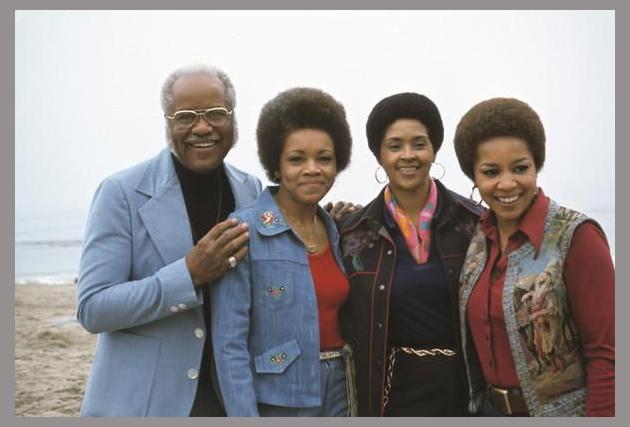 The Staple Singers
The Staple Singers
The Staple Singers: A Legacy of Gospel, Soul, and Civil Rights
Emerging from the heart of the Mississippi Delta, The Staple Singers left an indelible mark on American music and the Civil Rights Movement. Led by patriarch Roebuck "Pops" Staples, the family ensemble blended soulful harmonies, gospel fervor, and unwavering activism.
Early Years:
Pops Staples, a sharecropper's son, instilled a deep love of music in his children. In the 1940s, he formed The Staple Singers with his wife, Oceola, and their two daughters, Cleotha and Mavis. They sang spirituals and traditional folk songs at local churches and revival meetings.
Gospel Success:
In the 1950s, The Staple Singers signed with Vee-Jay Records and released several chart-topping gospel albums. Their soulful renditions of hymns became staples in churches across the country, earning them a devoted following among gospel enthusiasts.
Civil Rights Activism:
Simultaneously, The Staple Singers emerged as outspoken advocates for civil rights. They performed at rallies, sang songs of protest, and faced threats and violence for their unwavering stance against segregation. Their music became a powerful soundtrack to the struggle for equality.
Commercial Breakthrough:
In the mid-1960s, The Staple Singers crossed over to mainstream success with the release of "I'll Take You There." The song topped the pop charts and became an anthem for both the Civil Rights Movement and the era of soul music.
Later Years and Legacy:
Throughout the 1970s and 1980s, The Staple Singers continued to release critically acclaimed albums and tour extensively. They received numerous awards and accolades, including induction into the Rock and Roll Hall of Fame in 1999.
Notable Members:
* Roebuck "Pops" Staples: Patriarch, lead singer, and guitarist
* Cleotha Staples: Oldest daughter, vocalist
* Mavis Staples: Youngest daughter, vocalist
* Yvonne Staples: Brief member, vocalist
Challenges and Controversies:
* Faced threats and violence for their civil rights activism
* Accused of being too political in their music by some critics
* Struggles with record labels and financial exploitation
Discography:
* Gospel Albums: "Uncloudy Day" (1959), "Swing Low, Sweet Chariot" (1961)
* Soul Albums: "We'll Never Turn Back" (1967), "Be Altitude: Respect Yourself" (1971)
* Pop Singles: "I'll Take You There" (1972), "Let's Do It Again" (1975)
The Staple Singers' legacy extends beyond their musical achievements. They used their voices to amplify the struggle for civil rights and inspire generations with their message of hope and perseverance. Their music remains a testament to the transformative power of art and its ability to shape both personal and societal change.
Emerging from the heart of the Mississippi Delta, The Staple Singers left an indelible mark on American music and the Civil Rights Movement. Led by patriarch Roebuck "Pops" Staples, the family ensemble blended soulful harmonies, gospel fervor, and unwavering activism.
Early Years:
Pops Staples, a sharecropper's son, instilled a deep love of music in his children. In the 1940s, he formed The Staple Singers with his wife, Oceola, and their two daughters, Cleotha and Mavis. They sang spirituals and traditional folk songs at local churches and revival meetings.
Gospel Success:
In the 1950s, The Staple Singers signed with Vee-Jay Records and released several chart-topping gospel albums. Their soulful renditions of hymns became staples in churches across the country, earning them a devoted following among gospel enthusiasts.
Civil Rights Activism:
Simultaneously, The Staple Singers emerged as outspoken advocates for civil rights. They performed at rallies, sang songs of protest, and faced threats and violence for their unwavering stance against segregation. Their music became a powerful soundtrack to the struggle for equality.
Commercial Breakthrough:
In the mid-1960s, The Staple Singers crossed over to mainstream success with the release of "I'll Take You There." The song topped the pop charts and became an anthem for both the Civil Rights Movement and the era of soul music.
Later Years and Legacy:
Throughout the 1970s and 1980s, The Staple Singers continued to release critically acclaimed albums and tour extensively. They received numerous awards and accolades, including induction into the Rock and Roll Hall of Fame in 1999.
Notable Members:
* Roebuck "Pops" Staples: Patriarch, lead singer, and guitarist
* Cleotha Staples: Oldest daughter, vocalist
* Mavis Staples: Youngest daughter, vocalist
* Yvonne Staples: Brief member, vocalist
Challenges and Controversies:
* Faced threats and violence for their civil rights activism
* Accused of being too political in their music by some critics
* Struggles with record labels and financial exploitation
Discography:
* Gospel Albums: "Uncloudy Day" (1959), "Swing Low, Sweet Chariot" (1961)
* Soul Albums: "We'll Never Turn Back" (1967), "Be Altitude: Respect Yourself" (1971)
* Pop Singles: "I'll Take You There" (1972), "Let's Do It Again" (1975)
The Staple Singers' legacy extends beyond their musical achievements. They used their voices to amplify the struggle for civil rights and inspire generations with their message of hope and perseverance. Their music remains a testament to the transformative power of art and its ability to shape both personal and societal change.